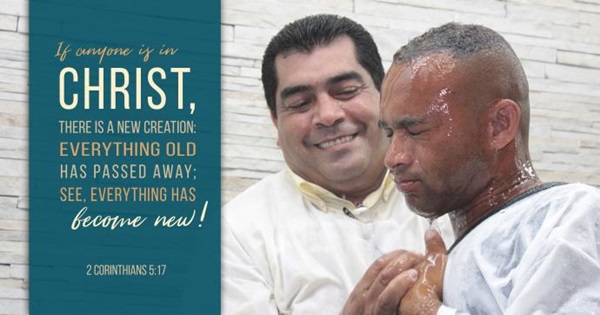As Mark Stamm, a professor at Perkins School of Theology in Dallas, is fond of saying, “We always baptize babies.”
What does he mean by that? That we require every baby to be baptized? That we do not baptize children, youth or adults? Or that it’s too late to be baptized if you weren’t baptized as an infant?
No. He means that at whatever chronological age we are baptized, we are always, at that moment, babies or new creatures in Christ.
United Methodists are glad to baptize people at whatever age or stage they come, or others present them, for baptism. There is no time too soon, and no time too late, to begin one’s journey with Christ and life in the power of the Holy Spirit. Baptism marks the beginning of all of that, whenever it may come in our lives.
And, unlike what some may tell you, just because you are an adult does not mean you have to be ready to profess the baptismal and membership vows yourself in order to receive Christian baptism. You do not.
You may be ready for baptism, just as a baby may be ready to be born, but you may not necessarily be ready at that time to do everything a more mature Christian may do. And that’s OK. It’s perfectly acceptable for a child, youth, adult or senior adult to receive Christian baptism but not yet take the vows for themselves.
In these instances, just as at the baptism of an infant, one does not yet “speak for oneself” but others — typically parents or other sponsors for an infant, child or youth, or another adult sponsor for an adult — may publicly reaffirm their own baptismal vows and commit to walk with you and work with you until you are ready to confess the vows for yourself and become a professing member in The United Methodist Church.
Baptism is all about beginnings. Whenever you’re ready to begin a life of discipleship to Jesus Christ with the church, and the church is ready to help you take your next steps, that’s a good time to be baptized.
Related videos:
United Methodist Beliefs: Baptism and Confirmation
Have questions? Ask The UMC. And check out other recent Q&As.
This content was produced by Ask The UMC, a ministry of United Methodist Communications. First published Nov. 27, 2018.

